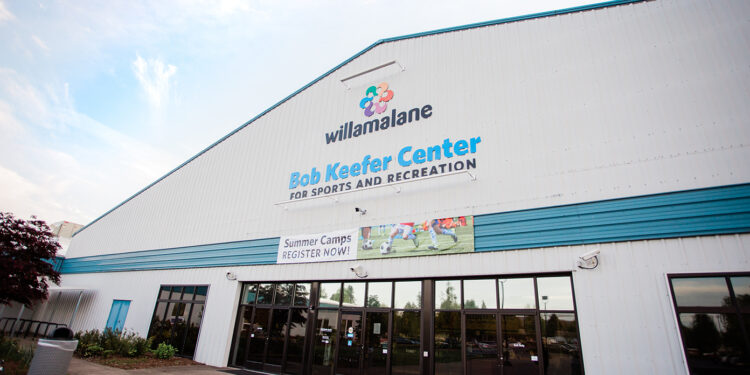Springfield Chamber Submits Public Comment on Willamalane System Development Charges

The Springfield Chamber recently submitted public comments to Willamalane Park and Recreation District regarding their System Development Charges methodology update. System Development Charges (SDC) are one-time fees collected to fund public infrastructure needed for new development. In Springfield, SDCs support stormwater, wastewater, transportation, parks, and Willamalane’s projects, such as new park development, trail expansions, and community improvements outlined in its updated 20-Year Comprehensive Plan.
The Chamber appreciated the thoughtful and collaborative approach demonstrated throughout the process, particularly the decision to table the non-residential SDC pending further impact analysis. This consideration, along with other key elements of the updated methodology – such as scaling fees based on housing size and deferring payments to the certificate of occupancy stage – reflects a balanced effort to support both community growth and economic development.
The comments submitted by the Chamber read as follows:
January 2, 2025
RE: System Development Charge Methodology Update Draft Recommendations
Dear Members of the Willamalane Board of Directors,
Thank you for engaging the development community in your System Development Charge (SDC) methodology review process. Your attention to housing affordability and the broad impact of parks and recreation facilities is commendable. The District staff have been open to input and feedback, allowing opportunities to weigh in and, at times, challenge the consultant’s recommendations and assumptions.
We would also like to express our gratitude to Willamalane staff for joining us at a Chamber Leaders Advisory meeting in early December. Their explanation of the methodology recommendations was informative and fostered a greater understanding among stakeholders of the proposal set to come before the board for adoption.
We strongly support staff’s recommendation to pause the non-residential SDC portion of the methodology. This thoughtful action reflects a willingness to listen to stakeholder feedback and demonstrates a collaborative approach to addressing complex issues and unintended consequences. We welcome the opportunity to support Willamalane as this process evolves and look forward to continued dialogue regarding a non-residential SDC in the coming months.
The updated methodology provides a more adaptable framework for future development, and we continue to support the following measures included in the proposal:
• Scaling SDCs based on housing square footage, ensuring fees align with demand.
• The proposed three-year phased-in fee approach, which balances certainty for developers with the district’s fiscal needs.
• Delaying payment of SDCs to the certificate of occupancy stage, providing flexibility for developers. We would strongly encourage Willamalane to consider broadening the scope of deferred payments beyond low-income owner-occupied housing, which is currently very narrow, to support a range of development projects and address diverse housing needs.
• The inclusion of a process that allows developer credits for eligible community benefit projects.
Finally, we emphasize the importance of clear communication and transparency in implementing SDCs. A well-designed process will facilitate collaboration with development partners, ensuring the methodology supports Springfield’s growth while addressing affordability and economic development priorities.
Again, thank you for the opportunity to provide input on behalf of our local business community. We remain committed to supporting policies that foster Springfield’s sustainable growth and economic competitiveness.
Sincerely, ![]()
Vonnie Mikkelsen
President and CEO
Springfield Area Chamber of Commerce
As a trusted convener and provider of business resources, the Springfield Chamber is committed to fostering policies and incentives that contribute to our competitive position in private sector job creation, retention, and economic growth. The Chamber recognizes the systemic interdependencies of a healthy economy and provides an ear and a voice for local business at the confluence of government, commerce, and community. Through a robust platform of member advocacy services, the Chamber advocates for business by increasing visibility, dialogue, and representation at local, state, and federal policy circles around issues of impact and interest to their members.
Discover more from Springfield Bottom Line
Subscribe to get the latest posts sent to your email.





